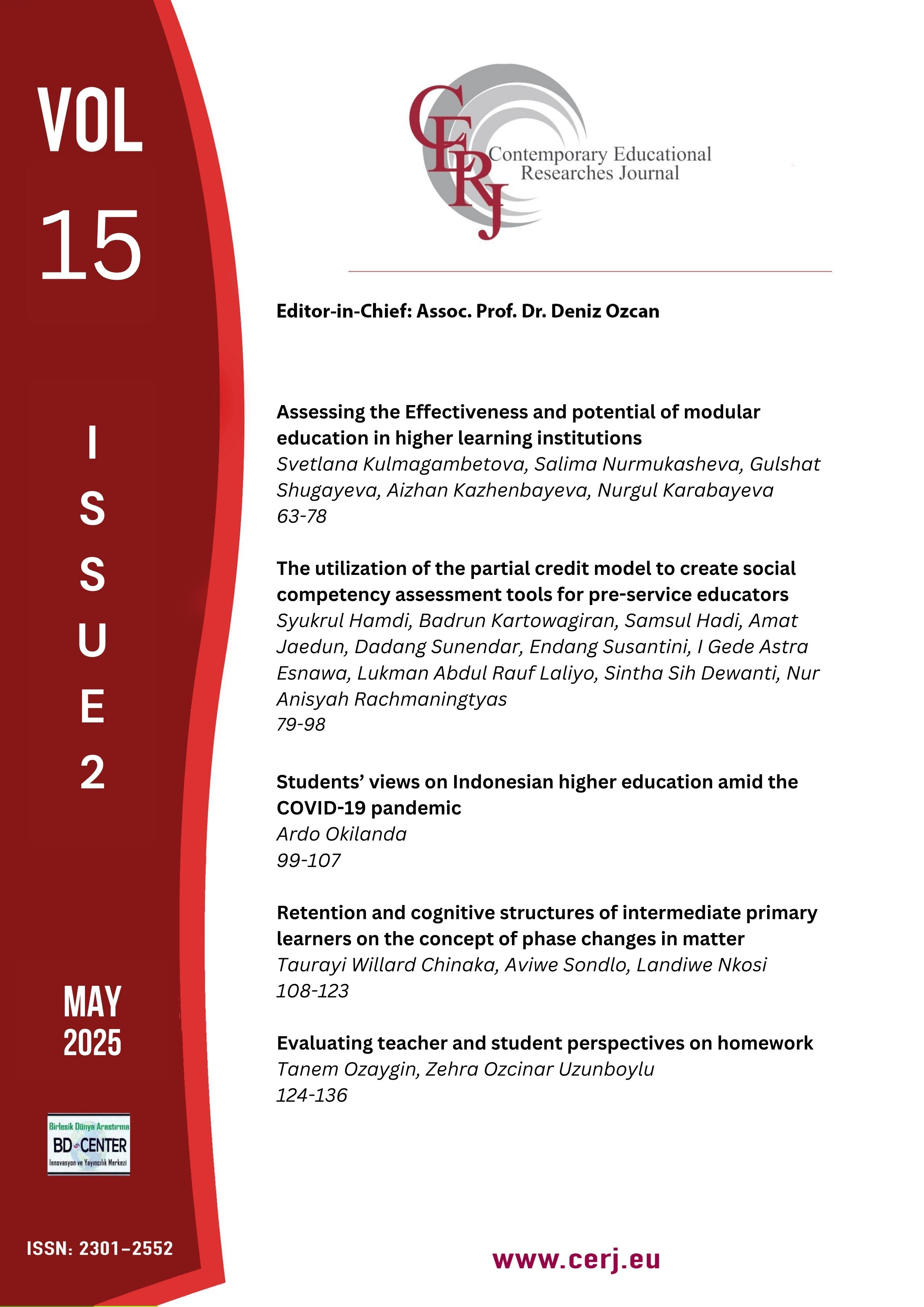Students’ views on Indonesian higher education amid the COVID-19 pandemic
Main Article Content
Abstract
The transition to home-based learning during the COVID-19 pandemic presented a significant shift in the educational landscape, prompting an urgent need to evaluate its effectiveness. This study aimed to investigate how secondary education was implemented during the pandemic and how students responded to online learning. A survey design was employed, targeting senior high school students from various regions, with a total sample of 2156 respondents across 18 provinces. The findings revealed that the majority of students participated in online learning, with the majority accessing lessons via mobile phones. However, only a few students reported a clear understanding of the material presented. Furthermore, the majority of respondents indicated a preference for traditional face-to-face learning over online instruction. These results suggest that while the infrastructure and technological accessibility for online learning were adequate, comprehension and engagement remained limited. The study highlights the need for improving instructional strategies and learner support in virtual environments to enhance educational outcomes during emergency remote learning.
Keywords: Distance education; learning preferences; mobile learning; online instruction; pandemic education
Downloads
Article Details

This work is licensed under a Creative Commons Attribution-NonCommercial-NoDerivatives 4.0 International License.
Authors who publish with this journal agree to the following terms:
- Authors retain copyright and grant the journal right of first publication with the work simultaneously licensed under a Creative Commons Attribution License that allows others to share the work with an acknowledgement of the work's authorship and initial publication in this journal.
- Authors are able to enter into separate, additional contractual arrangements for the non-exclusive distribution of the journal's published version of the work (e.g., post it to an institutional repository or publish it in a book), with an acknowledgement of its initial publication in this journal.
- Authors are permitted and encouraged to post their work online (e.g., in institutional repositories or on their website) prior to and during the submission process, as it can lead to productive exchanges, as well as earlier and greater citation of published work (See The Effect of Open Access).
